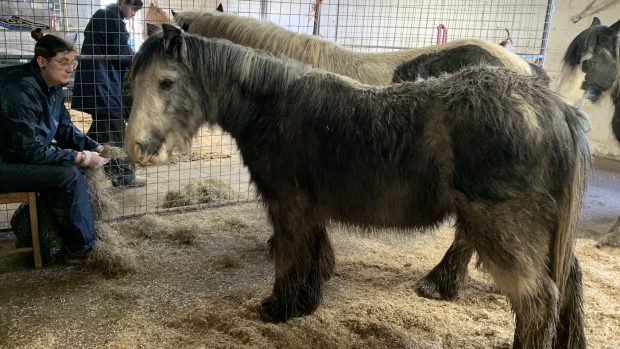The FEI has changed its rules on equine influenza vaccination and now require horses competing in international events to be vaccinated every six months.
Equine influenza is a viral respiratory disease that spreads quickly and easily. Despite the common use of vaccination, influenza outbreaks have been rising in recent years and the FEI is concerned that it can seriously compromise the international movement of horses.
“A sports horse brought influenza to Hong Kong in, I think, 1996. You have to avoid this at all costs,” says Dr Frits Sluyter, who heads the FEI veterinary department.
The federation originally required horses to get an annual booster against the disease, but recent studies have shown that vaccine protection against influenza declines a few months after the injection is given. This makes horses vulnerable to the disease towards the end of the vaccination period, even if they don’t show any clinical sign of the infection. Concern that these cases could spread the virus and lead to an outbreak prompted the FEI to revise its rules.
“Many people have known for a number of years that if you vaccinate a horse once a year, at the end of the twelve months the horse is not completely protected. This is very dangerous, because the horse could get the influenza but not show any sign, so he could get and spread the disease. This item had been discussed a number of times and action has been taken now,” says Sluyter.
The FEI General Assembly approved the rule change, which now requires booster vaccinations to be given at six-month intervals from 1 January 2005.
“New vaccines are being developed all the time, so this [rule] is subject to an annual review. Nothing stops us from going back to annual vaccinations if the right [vaccine] is developed,” says Sluyter. “But we are a global organisation — vaccines which are available in Europe may not be available in India, for example. Clearly, the case is that it safer to vaccinate every six months.”
The FEI accepts all proprietary vaccines against equine influenza. A primary course of the vaccine should be given in two doses between a minumum of 21 days and a maximum of 92 days apart. Booster vaccination must then follow every six months. To avoid disrupting a horse’ s competition schedule, the Federation allows a three-week extension beyond the 6-months deadline, which means that a booster vaccination must be given no later than 6 months plus 21 days after the previous one.
“Riders were worried about fitting in vaccinations with their competition schedule, which is why we created a window about that six-month moment,” Sluyter explains. “It’s not because horses won’t be able to compete when given the vaccine, but we need to give riders a chance to build it into their stable management.”
The FEI clarified that “a shorter vaccination interval is obviously permitted” and that “when the vaccination schedule is changed from annual to bi-annual, the horse does not need a new primary vaccination.” Details of the booster must also be entered in the FEI passports.
Throughout 2005, the Federation will issue warnings to remind that the bi-annual booster is now compulsory. From 2006, however, horse owners who do not comply with the regulation will face fines of CH200 (£90) to CH400 (£180), depending on how late the booster injection is administered.
“It’s similar to the penalties [which applied for the annual vaccination]. The penalty increases if the vaccination is out of date for a longer time,” says Sluyter.
Horses who are given the booster dose more than four weeks after the six-months plus three weeks interval will not be able to take part in events and their owners will be fined CH500 (£225).




